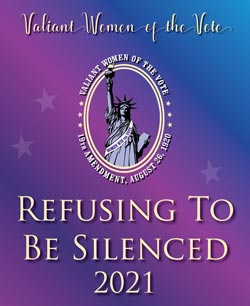Teen motivation and the impact of emotional responses to mobile phone apps
Teen motivation is dependent on the culture surrounding him or her. Neil Howe, the author and historian who first came up with the term “millennial generation”, explains that economic and cultural changes play a larger role in influencing the generational differences. According to Neil Howe, "The Great Recession and its aftermath are likely to make the postmillennial generation more risk-averse."
Mr. Howe's consulting company, LifeCourse Associates, has learned that teens are sensitive when it comes to social media criticism. Today's generation of teens is much more aware when a mobile phone app affects their moods. They aren't shy when it comes to expressing the effect apps have on their up or down emotional mood swings. Down mood swings can have a huge impact on teen motivation.
Teen motivation and the Wishbone app
Michael Jones, a 40-year-old Generation Xer, and Peter Pham founded a new company called Science Inc. that owns the Wishbone mobile phone application. Mr. Jones, the chief executive of Science Inc. explains his understanding of teen motivation today. "They have immediate social validation or lack of validation at the touch of a button," according to Michael Jones.
Wishbone is a social networking application (app) that is popular with today's teens. The mobile phone app consists of polls about pop culture, popular celebrities, prom outfits and other things important to today's teens.
Two eighth graders from Palo Alto, California were looking for free samples at their local mall. By the way, they passed through many clothing stores, but did not make any purchases. Wishbone is only one app that one teen uses with her friends.
During a recent focus group at Science Inc., one girl mentioned that she likes to get feedback on her Instagram posting ideas by showing them to others first before she posts them. Another focus participant shared posts that don't accumulate enough likes. Her explanation, "I post and I just delete, because I don't want to, like, never mind." She was too ashamed to announce aloud how many likes for her posts that she received.
One teen chose to post a few videos on Snapchat. Why didn't she also post the same videos on Instagram? The other teen friend explained that Instagram is special. On Instagram, teens are careful not to offend the feelings of the friends receiving the photos. A steady barrage of low-quality videos and pictures might be too annoying to them. Teens also regularly delete their Instagram photos limiting the number of photographs displayed on their Instagram profiles.
Wishbone views against anxieties as business opportunities. The app does not require users to take beautiful selfie pictures. Nor does the app require teens to have parents who vacation in Instagram-perfect locales. The app focuses on teen tastes and interests instead of teen identities. Wishbone app users can create funny polls to discuss celebrities, bands, makeup and other interests today's teens have. Teens that focus all attention away from themselves foster their own teen motivation.
How to motivate a teenager who doesn't care
When teens text too much it can lead to other problems. A parent may want to answer "why my teenage son won't study." Teachers want to know how to motivate adolescent students. How to motivate teenage girl is a challenge for another parent. Although most schools restrict the use of mobile devices, 64 percent of teens text during class.
Teens may develop bad sleeping habits, exhibit antisocial behavior or have self-esteem issues. Cyberbullying and sexting (texting with sexual connotations) are downsides to the use of mobile technology. Teens tend to text while driving. This causes accidents and teens to be injured in serious automobile crashes.
Teens develop a "texting" addiction. Most teens state they can't live a week without a smartphone and 15 percent of teen send more than 200 texts a day. How to encourage teenage son or how to motivate teenage girl to stop texting and do other things. Many parents are searching for help and answers on how to control the bad texting habits of their teens.
Parents can talk to their teens about their unhealthy texting habits. Chat conversation examples include discussing the possible consequences of their teen's bad texting habits. Setting texting limits at home, while in school, during meals and at other times of the day or night. Many cell phone carriers can restrict texting during specified hours.
Although teens need a sense of independence and privacy, parents are the ones responsible for their well-being. Parents should read texts and monitor their mobile device usage. Getting to know their teen's friends, staying involved in their lives and demonstrating a caring attitude are the best ways to show how to motivate an unmotivated teen.
Motivating your intelligent but unmotivated teen reviews.










